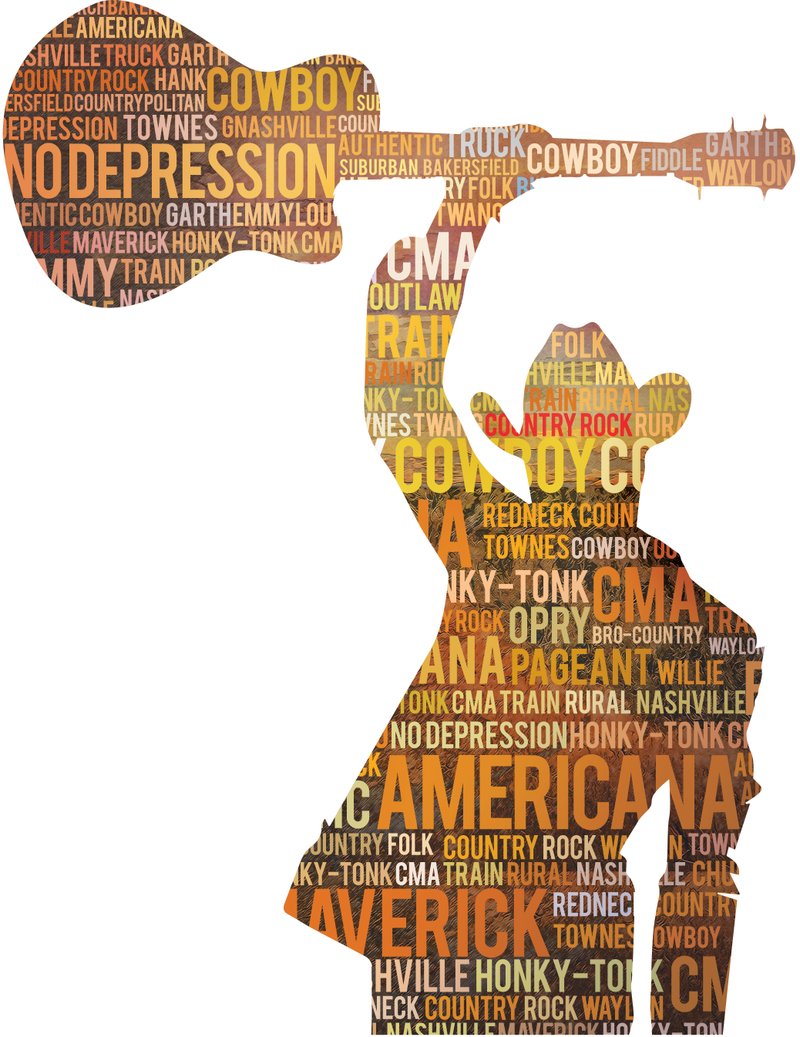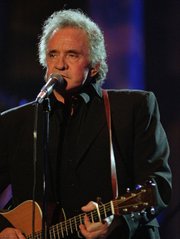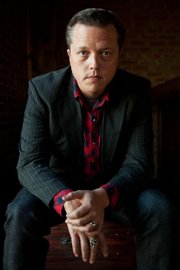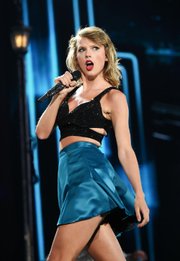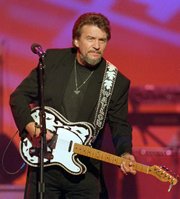A couple of years ago, Zac Brown, the lead singer and guitarist of the Zac Brown Band, was interviewed on CJJR, a country music radio station in Vancouver, British Columbia. In the course of what seemed like a standard gig-promoting call-in, Brown admitted there was "not a lot of the country format I enjoy listening to."
"If I hear one more tailgate-in-the-moonlight Daisy Dukes song, I wanna throw up," he told interviewer Barbara Beam. "There's songs out right now on the radio that make me ... ashamed to be even in the same format as some of those artists."
"So are you saying you're not a big fan of Luke Bryan then?" Beam asked.
"I love Luke Bryan, and he's had some great songs, but this new song ["That's My Kinda Night"] is the worst song I've ever heard," Brown said. "I see it being giant, commercially successful within what is called country music these days, but I also feel like ... country fans and country listeners deserve to have something better than that; a song that really has something to say. Good music makes you feel something."
In all fairness, when Brown said Bryan's "That's My Kinda Night" was the worst song ever, he had probably never heard Randy Houser's "We Went," which was released in May. On the other hand, he couldn't have possibly missed Darius Rucker's version of "Wagon Wheel."
We're getting off to a rocky start, but believe me when I say I have no dog in this civil war between defenders of traditional country music and pop country.
What I think of as country music is pretty simple -- it is music about ordinary lives, about the ways people struggle and overcome or, more often, struggle and fail. It's usually got words, it usually tells stories, it's usually pretty easy to play in open guitar chords. It has a rural orientation, as its name suggests. It's not fancy.
It's not quite dead either, but you have to hunt for it. You don't hear Lucinda Williams or Steve Earle or even Jason Isbell, who recently had the No. 1 album on both the country and pop charts, played much on nonsubscription radio. To hear country music on free radio you've got to squeeze over to the left side of the dial and catch Flap Jones' Not Necessarily Nashville on KUAR-FM.
That's what I call country music. Most people these days would call that "Americana" or "alt-country" or "country rock" even plain old "rock." I think we waste an awful lot of time arguing over labels, deciding in which section of the theoretical record store we carry around in our heads we ought to file a particular artist.
Artists have every right to resent this kind of socio-cultural tagging. Creators generally aren't interested in whether their work comfortably fits into one of the ready-made genre bins critics and marketeers have prepared. The very act of assigning an artist to a category can be perceived as
hostile and limiting, a way to keep that artist under control.
On the other hand, there's a human impulse to categorize, to sort and to label collections of things that we imagine have something in common. This might be inevitable given the way human beings think -- whenever we encounter something new, we tend to think that it is like this or not like that. Maybe it is a mental convention, a habit the species has fallen into, a dog-trotted path worn smooth on our collective cerebral cortex.
So let's agree there's no judgment implied in saying I don't think an artist like Eric Church is particularly country. That doesn't mean I don't enjoy some of his music. I kind of like Church and sometimes listen to his records. I like Taylor Swift too -- theoretically, at least. I've heard a few of her songs and they've made me smile.
But I don't think the music Church, Swift and most other people who get played on country radio stations make is country music. They make popular music. They make music designed to appeal to as many people as possible across all four major demographic "quadrants."
This isn't news to those who think even a little bit about the music they listen to -- despite all the attempts by multinational manufacturers of escapist diversions, people aren't stupid. They may be a little lazy, but we're talking about entertainment products here and not everyone likes parsing out what tickles their nucleus accumbens.
But that kind of parsing falls within my job description. It's interesting to think about how little modern country music seems to have in common with the grand tradition of country music, the white folk tradition that stretches back to the Carter Family, Jimmie Rodgers, Uncle Dave Macon, Carl Sprague, et. al.
Plenty of current country music stars will acknowledge a debt to artists like Waylon Jennings, Willie Nelson, Merle Haggard and Johnny Cash, but the truth is that inheritors of the '70s "outlaw" country movement needn't apply to the Nashville sound combines.
Hayes Carll, Sturgill Simpson and even Rosanne Cash don't fit the current country star mode.
But let's be clear: The new Nelson and Haggard album, Jimmie and Django, is alternately dull and silly, a tossed-off if not cynical cashing-in. Maybe they've earned the right to put out a mediocre giggle-and-hit record, but we also have the right not to pay it any mind.
But stars like Rucker, Bryan, Sam Hunt, Jason Aldean, Florida Georgia Line, Rascal Flatts, Keith Urban, Hunter Hayes, Chris Young, Lady Antebellum, Kenny Chesney and, for that matter, Zac Brown have very little to do with the sort of music I call country.
I tend to agree with Tom Petty that a lot of what is popular now is "bad rock with a fiddle."
A lot of people like bad rock, and don't mind fiddles.
ALL HAT, NO CATTLE
T Bone Burnett once said that American pop music really changed around the beginning of the '70s, when record companies figured out how to sell music to people who don't care for music.
That strikes me as an accurate observation. While there's always been cheesy stuff (like The Archies' "Sugar, Sugar" -- sublime junk, maybe, but junk nonetheless) at the top of the pop charts, it used to be that some pretty great records cut through the static. Bob Dylan never had a No. 1 single, but "Like a Rolling Stone" peaked at No. 2. Otis Redding's "(Sittin' On) The Dock of the Bay" was No. 1. Marvin Gaye's "I Heard It Through the Grapevine" was No. 1. The Beatles had No. 1 hits. Not everything that's extraordinarily popular is dumbed-down and averaged out.
I suspect that you have to develop an appreciation for music, or at least for some types of music. If you're raised in an environment where everyone plays an instrument, if you're organically part of a certain tradition, you might respond naturally to Hank Williams or Charley Patton.
These days, most Americans consume a lot of mainstream TV and movies, and we're often presented with the idea of "rock singer" or "country singer" before we understand exactly what it is those guitar-clutching tropes do. My earliest experiences with music included riffling through my parents' record collection, looking at the covers, and watching syndicated country music shows (Porter Wagoner, the Wilburn Brothers) on television.
We don't really choose how we consume music -- or even if we're the sort of person who discriminatingly chooses music -- until after we've been immersed in the stuff for a decade or so. Most people are probably content to accept whatever the radio offers. For them, music is something that remains in the background. This is the audience for reality shows like The Voice and American Idol, which parody and gamify the music-making process.
Dave Grohl can rant against these spectacles all he wants, he can insist that there's more to making music than just hitting notes and looking glamorous, but the truth is most people don't care about song craft or intelligence or harmonic novelty or even something as basic as major-minor modulations. The truth is, for a lot of people, it really is more about the singer, the choreography, the beat, or all the above than it is about the song.
Which is why Hunt can release what's basically an electronic dance music track as a country single and everybody shrugs. He's costumed as a country singer, he's presented as a country singer, therefore he is a country singer.
It has far more to do with fashion -- creased jeans and big trucks -- than it does with any sort of tradition. It's not so much that I'm OK with that as that I understand it has always been that way at least since people figured out how to make big money selling musicians. There's always a tension between art and commerce.
So when someone like Blake Shelton says "[n]obody wants to listen to their grandpa's music," he's right about most people. While there exists a considerable minority who still listen to Hank Williams and Lefty Frizzell and support younger artists who make music in that tradition, he's right to suggest they don't really move any commercial needles.
Aside from a select few artists who cut across genres, nobody sells a lot of records anymore. When Isbell's Something More Than Free topped Billboard's charts recently, it sold only 45,785 copies that week. (Alan Jackson's Angels and Alcohol was second, with first-week sales of 45,310 copies. Taylor Swift's 1989 sold nearly 1.3 million copies its first week of release in 2014.)
If you ask around your office, you'll likely discover that not too many of your co-workers have even heard of Isbell, despite the buzz and hype that has attended the new record. That's because that while people like me and you -- critics and others who are invested enough in this music to write and read about it -- know all about Isbell, he hasn't made much of an impact on the collective consciousness of America. His recent chart success is more indicative of the irrelevance of album sales charts than anything else. He can have the No. 1 record in the country, but he's not going to play Verizon Arena the next time he comes to town.
SHAKE IT OFF
One of the problems with writing about music in a general-interest publication such as a newspaper is that there's not all that much interesting to be said about some music.
Swift is a pleasant enough singer, but she's more interesting as a post-Madonna phenomenon than as a songwriter. She's one of those transcendent performance artist celebrities who work with tweets and videos and talk-show appearances. It's not being mean to say she's only incidentally a musician. There's a lot to consider there -- maybe I ought to write something.
But she's not country. She's not even music. She's something Other. Deal with it.
I'm not particularly worried about my kind of country music going away. Bro-country won't kill it any more than producers Chet Atkins and Billy Sherrill killed it in the 1960s with strings and tuxedos. And not because it's some magical, unicorn-like animal either.
Country music won't die because there will always be someone interested in expressing the idea that we are all more alike than different, that no matter what we wear or where we're from, human hearts knock in accord.
Country music is raw stuff, hewn from the plaintive, simple words of taciturn folk. If you listen to one of Jimmie Rodgers' blue yodels or one of George Jones' flat-sung dramedies, you might be able to hear something of the same primal, never-to-be-achieved longing that informs real country music. Stark and understated, country music was wrenched from the unfetched dreams of ordinary Americans.
Yet since it is a folk (not commercial) art, it is liable to be corrupted by contact with the pop idiom. So it is understandable that every few years someone will mistake the blurring of lines between "pop" and "country" and proclaim that the genre has been consumed by the star-maker machinery -- country is dead; it has lost its distinct identity, reduced to gesture and costume.
But country ain't dead; it has just had its identity borrowed. It's like professional boxing in that just as you think the whole infrastructure might collapse from the weight of the fat hacks and the hangers-on, faith-restoring, charismatic performers seem to arise out of nowhere. You'll get a Gram Parsons or an Emmylou Harris. A Gillian Welch. A Kacey Musgraves.
There have always been smart, incisive songwriters working in the genre and there have always been "outsiders," marginalized by the Nashville star-makers. There has always been a tension between "traditionalists" and pop country advocates -- "honky-tonk" was an aberrant spore; now it's enshrined by purists.
There's always a danger in presenting a Manichean scenario. There are two kinds of people in this world: those who think there are two kinds of people and those who are smarter than that. There's nothing easier to be than a snob. On the other hand, recognize there are levels to the game. Roots are, by their nature, underground. You shouldn't expect them in the stars.
Email:
pmartin@arkansasonline.com
Style on 09/06/2015
